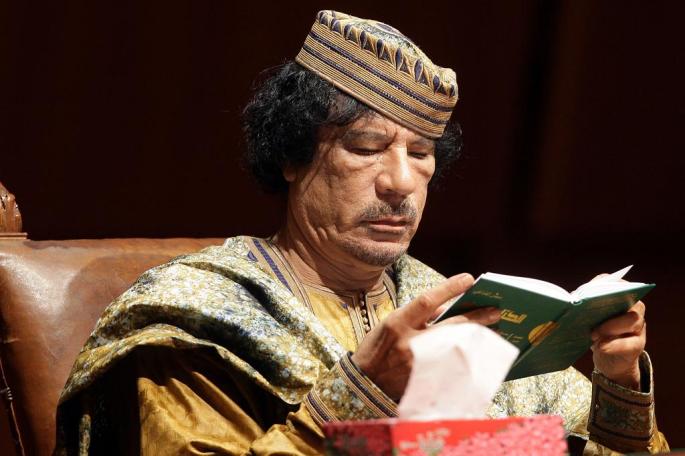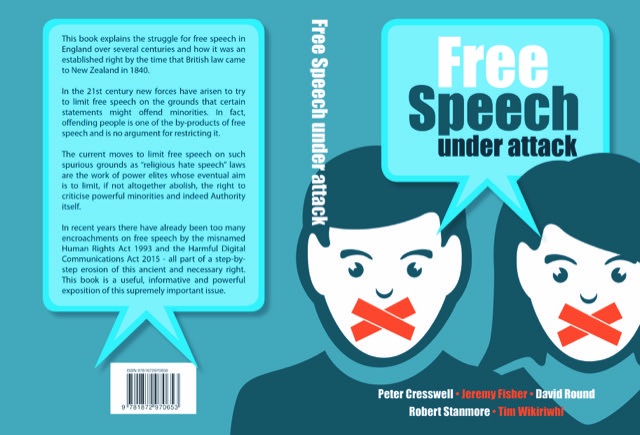
This reading carries on from here.
Part III is titled ‘The Social Basis of The Third Universal Theory’. This is divided into eleven chapters.
In the first, ‘The Social Basis of The Third Universal Theory’, Gaddafi declares that the social bond is the basis for the movement of history. Each group has common social needs which must be collectively satisfied. The national struggle is the basis of history. “…just as community is the basis for survival of all groups within the animal kingdom, so nationalism is the basis for the survival of nations”.
“Nations whose nationalism is destroyed are subject to ruin.” The destruction of nations leads to minorities. National unity is the basis of survival – Gaddafi compares it to gravity. Gaddafi channels Edward O Wilson at one point, stating that the social bond works automatically towards the goal of national survival. Nationalism is the secret of group survival and it’s harmful to go against this. He observes that marriage within a group strengthens its unity.
In the second, ‘The Family’, Gaddafi compares the family to a plant, both being an expression of Nature. Any “dispersion, decline or loss of the family” is unnatural and could be compared to the destruction of a plant. Gaddafi compares society to a garden. The ideal form is one in which the individual can flourish within the family and the family within society. A society in which individuals lived without their families would be artificial.
In the third, ‘The Tribe’, Gaddafi notes that a tribe is just an extended family, and a nation is just an extended tribe. This same point was noted in Aristotle’s Politics. “The relationship which binds the family also binds the tribe, the nation, and the world.” Feelings of kinship decrease the larger the kinship group is. Gaddafi ridicules those who think otherwise.
In the fourth, ‘The Merits Of The Tribe’, Gaddafi describes the tribe as a secondary family. It raises and educates those within it. It also allows more freedom than the family, which supervises closely. Blood is the prime factor in its formation, but a person or family can be part of the tribe by affiliation and then later part of the tribe by blood.
In the fifth, ‘The Nation’, Gaddafi notes that loyalty to any one of family, tribe, nation and humanity weakens loyalty to the other three. Selfishness is harmful to the wider group, but self-respect is beneficial to it. A shared destiny is essential to nationhood. “The national state is the only political form which is consistent with the natural social structure.” The nation-state will naturally endure unless attacked from the outside or unless it collapses into tribal mentality.
All states composed of multiple nations will eventually destroy themselves, because the social factor of national bonds will inevitably triumph over the political factor. The tribe develops individuals at the post-family stage, and the nation develops individuals at the post-tribe stage.
In the sixth, ‘Woman’, Gaddafi opens by declaring it self-evident that men and women are equal as human beings. However, the fact that both exist and not just one shows that they occupy different roles. Men and women cannot replace each other in those natural roles. Nurseries are unnatural and should not exist, save for the case of orphans, where nurseries are better than foster homes.
“In need, freedom is latent.” Therefore, women should not be forced to work to provide the necessities of life. Belief in gender equality deprives women of their freedom. Gaddafi notes, with disapproval, that societies everywhere seek to turn women into men. “Men and women must be creative within their respective roles.” Women should not be forced to carry out men’s duties to gain equality with men.
In the seventh, ‘Minorities’, Gaddafi outlines two kinds of minorities. One belongs to the nation, which provides its social framework, whereas the other must form its own social framework. He suggests that the problems of minorities have to be solved at the national level, in a society controlled by the masses. Minorities should not be seen as substrata.
In the eighth, ‘Black People Will Prevail In The World’, Gaddafi claims that black people are motivated to vengeance by slavery. Much as Asians and white people had eras of dominance over history, so too will the blacks. He notes that the backwardness of blacks has led directly to their numerical superiority. The populations of other races are declining because of their obsession with work, but this hasn’t affected the blacks.
In the ninth, ‘Education’, Gaddafi speaks against rote learning. He notes that the style of education that is typical in the world goes against human freedom. Forcing a human to learn according to a curriculum is dictatorship. State-controlled and standardised education stultifies the masses. Education of all kinds of subjects should be available. “Knowledge is a natural right of every human being.”
In the tenth, ‘Music And Art’, Gaddafi laments that there is no common human language. He makes the startling claim that the stylistic sentiments of earlier generations are passed down to later ones in the genes. “People are only harmonious with their own arts and heritage”. Eventually, Gaddafi claims, all people will speak one language, or society will collapse.
In the eleventh, ‘Sport, Horsemanship And The Stage’, Gaddafi equates spectator sport with watching someone pray or eat at a restaurant. Much of this chapter has no real Western context, as our participatory sports are organised in a different way. He agrees with the general Western sentiment that sports should be for the masses. But he makes some odd claims, such as that the grandstand was invented to deny popular access to the sporting field.
In summary, Gaddafi’s The Green Book is a wide-ranging summary of his political and social beliefs. It is penetratingly insightful at places, and bafflingly vague at others. His criticisms of democracy, as it is practiced, are brilliant, but the book is light on practical detail regarding the alternative. Far from coming across as a dictator, Gaddafi seems intelligent and reasonable in this book. There is no focus on destroying his enemies, but rather on how a great country could be built on nationalist and socialist principles.
*
If you enjoyed reading this essay/article, you can get a compilation of the Best VJMP Essays and Articles of 2020 from Amazon for Kindle or Amazon for CreateSpace (for international readers), or TradeMe (for Kiwis). A compilation of the Best VJMP Essays and Articles of 2019, the Best VJMP Essays and Articles of 2018 and the Best VJMP Essays and Articles of 2017 are also available.
*
If you would like to support our work in other ways, please consider subscribing to our SubscribeStar fund. Even better, buy any one of our books!

